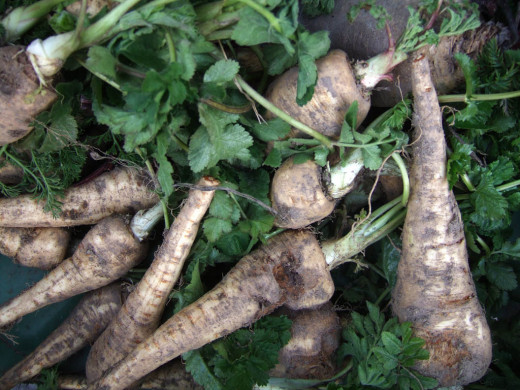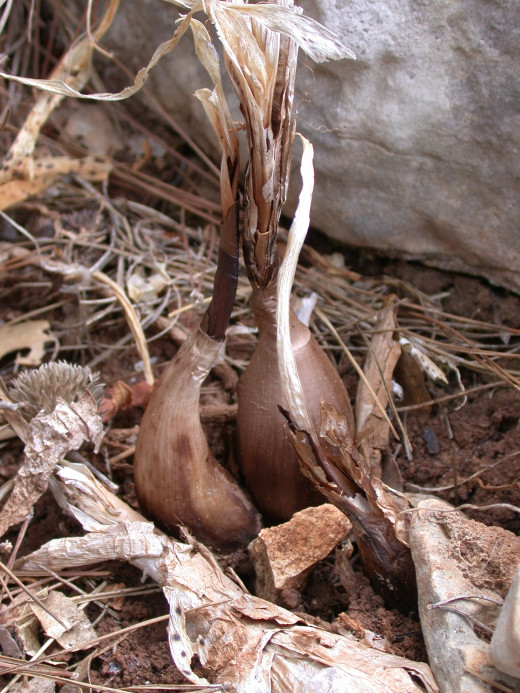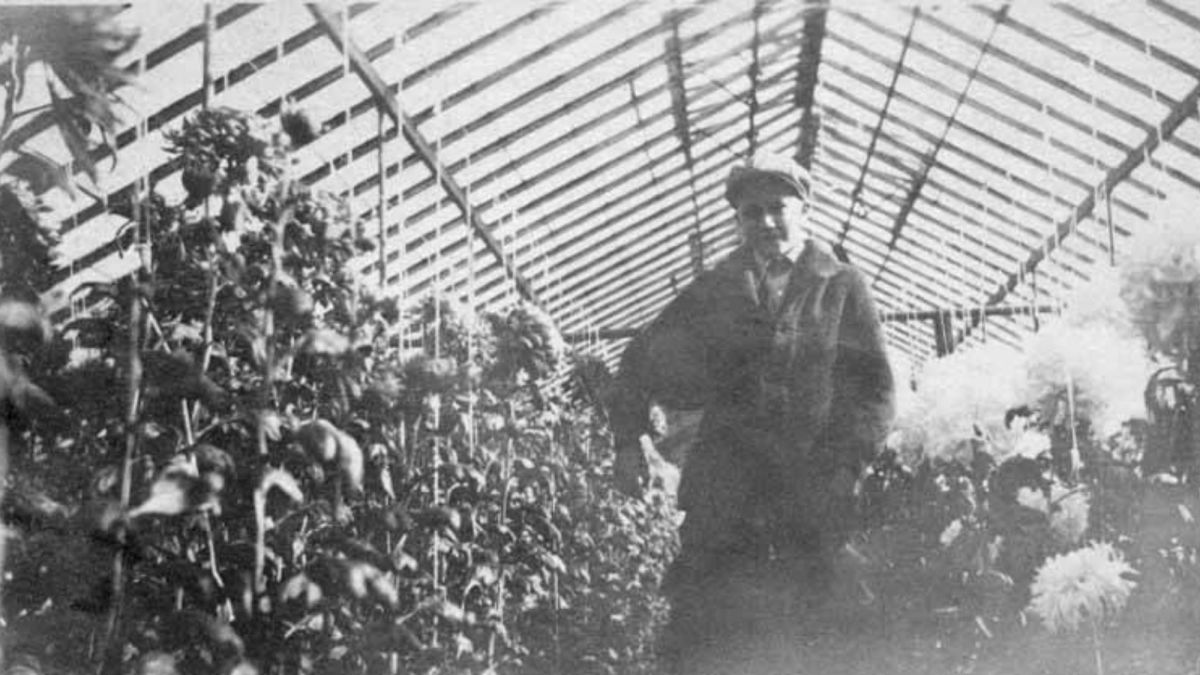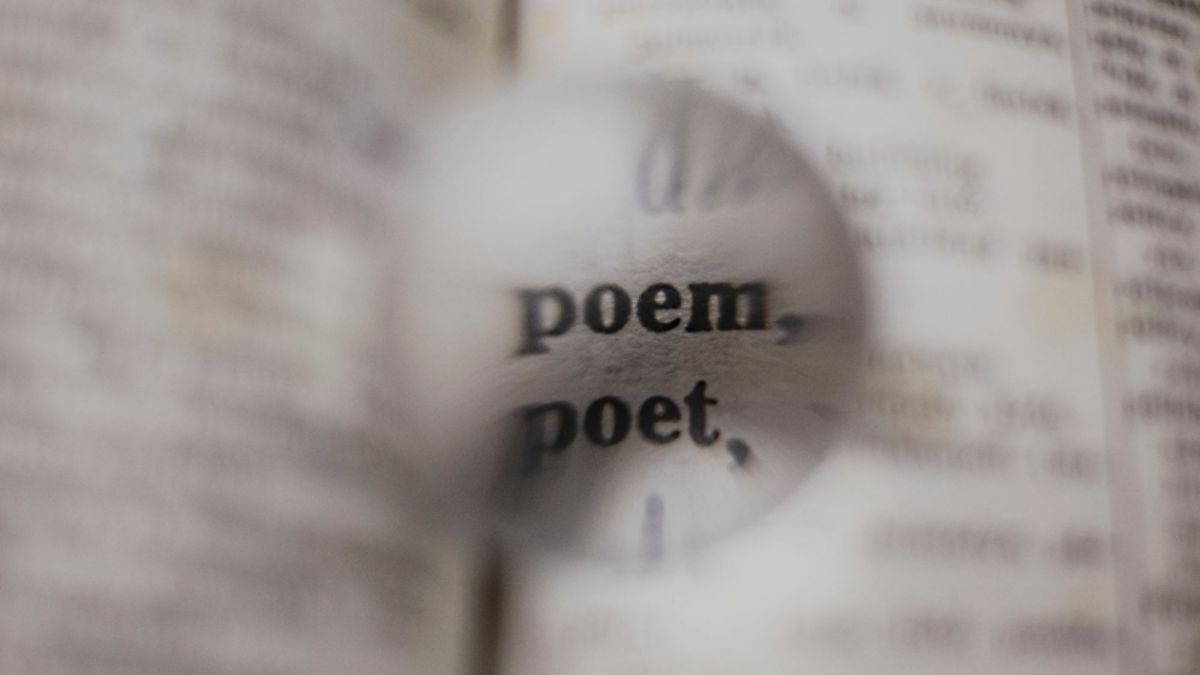Discovering Imagery
Definition
Imagery, in the literal sense, is when the writer gives the reader what I call the senses satisfaction. This means that you could almost hear, smell, taste, touch, and/or see what is going on inside a piece of a story or poem. Vivid descriptions can make you feel as though you are part of what the author is saying, which in the end gives the reader a big sense of connection to the piece.
So how does an author do this? Well I'll show you with one of my favorite "sensory" poem.
Theodore Roethke's "Root Cellar".

Root Cellar
Root Cellar
-by Theodore Roethke
Nothing would sleep in that cellar, dank as a ditch,
Bulbs broke out of boxes hunting for chinks in the dark,
Shoots dangled and drooped,
Lolling obscenely from mildewed crates,
Hung down long yellow evil necks, like tropical snakes.
And what a congress of stinks!-
Roots ripe as old bait,
Pulpy stems, rank, silo-rich,
Leaf-mold, manure, lime, piled against slippery planks.
Nothing would give up life:
Even the dirt kept breathing a small breath.

Finding the Imagery
Read the poem a few times and try to get the feel for it. First of all we are obviously talking about none other than a root cellar. Roethke is telling us how alive everything is down there that we would assume as dead or old. So what's the point of the piece? Is there some kind of point Roethke is trying to make by giving us such vivid imagery? It's also more so how he brings us to even care about something like the old mildewed plants that makes this piece so fascinating. How he brings all of these things to life by giving us such vivid descriptions.
So let's take it line by line. In the first line we have the beginning state that "nothing would sleep in that cellar,", so first we are given the weight of sleep and awake or life and death. So ponder that as we continue.
The next words are "dank as a ditch," first of all the use of a simile brings some life to the cellar because now we have something to compare it too. And what is a ditch look like to us. It collects moisture, maybe even puddles of water, it's muddy, maybe it smells...etc. So we now know that this cellar isn't like a clean cellar where all of our canned goods and holiday decorations are stored, it's dirty and wet.
The next line tells us, by using a little bit of alliteration (bulbs, broke, boxes), that things are still growing and they are looking for the light. They are looking for "chinks" (or cracks) "in the dark". So now we have an idea of how dark it is. Just like when bulbs are planted in the ground, they break loose and grow up towards the light. So we can kind of get the feel of life stirring even when left forgotten about or thought of as old dead plants.
The following line now gives us the image of the shoots coming out of the bulbs. You could easily picture a house plant that grows its stalks or turns its leaves towards the window. Here the shoots dangle and droop towards whatever light possible.
Next line we get a feel of the type of housing they are in. "Mildewed crates" are expected because we already know the cellar is "dank as a ditch". The moisture, though it creates mold and mildew, it also creates prettier life like plants. However, mold and mildew are life too, and here they grow alongside the plants.
The next line uses another simile of "like tropical snakes" to give the reader the image of all the yellow shoots dangling together. The use of personification is also used here. "Long yellow evil necks,", by giving the shoots a human quality of a neck we can start to connect with how they are alive too.
The next line brings in another sensory mode, our smell. By saying "congress" Roethke must mean just the coming together or gathering of smells, however, maybe there is some humor if you think of it politically.
The next lines read "Roots ripe as old bait, / Pulpy stems, rank, silo-rich, / Leaf-mold, manure, lime, piled against slippery planks." all give us the sense of smell. Just reading it I can smell the mold and the rot, yet through it all it is still life. Roethke brings the smells to you by specifically choosing words to intensify the meaning. These words for example would be ripe, pulpy, rank, and rich. These adjectives help intensify the roots, bait, stems, mold, manure, and lime and the smell these things carry. And as vivid as it is spelled and smelled out for us we can also see them heaped together against wet dirty boards.
And the last two lines basically tie in why all the details are so important to the piece. Finally here you get the meaning of the piece, the whole point of the poem. We finally understand why it was so important to get the grotesque smells of mold and decay in our nose and the sight of shoots and stems, bulbs and roots fighting for the light in a dark dingy cellar.
"Nothing would give up life: / Even the dirt kept breathing a small breath."
These old or unneeded bulbs didn't seem to serve a purpose to whomever had forgotten them in the cellar, yet they still live. If they are thought of as dead, it's not true. Even through death, even through dreariness, even though something may be vile and ugly, life lives.
Is Roethke giving telling us about the bigger picture here or just that mold and mildew is alive? Is this just a sensory poem, giving our noses a run for their money....or is there something more?
Enjoy!








